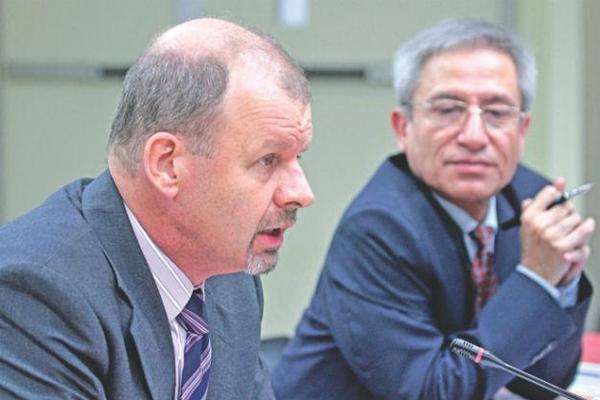World Bank: Turkey can surpass ‘middle-income trap’ through reforms
ANKARA - Anadolu Agency


Zutt, who took on the role three months ago, said he saw the Turkish economy as generally well-managed.
“Growth was stronger than anticipated and there has been a welcome pickup in investment. I think many countries in Europe would be happy with the growth rate that Turkey has… The county has enjoyed macroeconomic stability for a reasonably long time, and that means it also has a good investment climate,” said Zutt.
Political uncertainty has passed with the election cycle over, so the new majority government can get back to work on structural reforms, Zutt continued.
“If you look at Turkey from 2002-2003 to today, there was a strong period of reforms that really took the Turkish economy forward. This brought Turkey to the ‘middle income’ level - more than $10,000 per capita,” he said.
“But the real challenge is: How will Turkey advance to a higher income level, avoiding the middle-income trap?” Zutt asked, adding: “That will require higher productivity, and that is where the continuing reforms will play an important role.”
Countries caught in the middle-income trap must increase the value of their exports in order to maintain wage growth.
Legal climate for investments
For Turkey to do this, it has to increase productivity, and the reforms planned by the government could accomplish this if they are made in a wide range of areas, from support for productive sectors to education, Zutt said.
“For Turkey, improving the legal climate for investment is one area. The competency of management is another. And more flexible labor legislation is needed,” he added.
Like many developing countries, Turkey has a solid legal framework, Zutt said, but implementation of the laws can vary.
Zutt gave the example of the regulatory framework for the electricity sector, which now has a large number of private businesses involved.
“It functions very much as it would in a higher-income country,” Zutt said.
The World Bank was working with Turkish authorities to do the same for the gas sector, which still does not include enough private operators, nor is it structured in the same way the electricity sector is, according to Zutt.
The bank was also working with the government to support sectors of the economy which were already at a high productive level, Zutt said.
And the World Bank was supporting a project to benchmark regions of the country that were performing well in specific areas, with an idea to replicate that performance in other parts of the country.
“If a given city is very successful in, for example, dispute arbitration, we try to bring that model to the attention of other cities and provinces in the country,” Zutt explained.
